Anu Purani
(Dancer, Choreographer, Writer and Teacher in Auroshikha’s Udavi Village School)
Anu Purani is the only daughter of the late A.B. Purani, one of Sri Aurobindo’s original disciples, who was the recorder of Evening Talks with Sri Aurobindo, and author of Sri Aurobindo’s Integral Yoga, The Life of Sri Aurobindo and other publications. He was also a Sanskrit scholar.
Anu is small with a petite frame and a dancer’s lithe and supple body. She also moves with the grace and agility of a dancer; her back is straight, her head is held high and she has a turn of her feet reminiscent of ballet dancers in fifth position. She lives in the main Ashram compound near the Samadhi above what used to be the fruit room.
She was born in Surat, Gujarat, on January 5th. She told me that the year is unknown as her parents kept shifting her horoscope, but it is supposed to have been around the mid 1920s. She was brought to the Ashram when she was an infant at which time she and her mother joined her father who was already in residence there.
Anu told me that she had been very close to her father and that to her he was like a demi-god. She said that he was a very good father, teacher and a great human being. As a result of this closeness she spoke quite openly to me about him and in this interview her remembrances are lovingly detailed.
She told me that prior to his coming to the Ashram, while he was still in high school in Gujarat, he saw Sri Aurobindo in Baroda and when Sri Aurobindo gave a lecture he went to hear him. After seeing Sri Aurobindo he later told his friends that he felt Sri Krishna had again taken birth. At that time he was convinced that it was his destiny to follow him. Sri Aurobindo was planning a revolution in India. The British Raj was still in power and at that time, around the turn of the century, nearly all of India was colonized by the British. Sri Aurobindo was looking for strong young men who could prepare the district of Gujarat for the revolution to free India from the British. Anu said Sri Aurobindo selected her father and her uncle (his brother) and they were both quite willing to work in this capacity. While Purani was in college he started physical culture centers all over Gujarat for sports, bodywork, playing sticks, climbing wooden poles and wrestling. At that time there were many young men from Afghanistan who knew wrestling well and her father approached them and asked them to teach him wrestling. They would not do this so he decided to make a hole in the wall of their studio while they were practising and learn from them in this manner! Eventually he brought this sport and art form to his centers and taught it himself. After college he said he would not take a job so long as India was not free. He slept on the sidewalks during this period. His centers did not generate income at that time, but soon his work attracted the Indian Home Minister and other popular politicians of the day began to notice him. They were expecting him to be helpful with the Freedom Movement.
All this while he was communicating with Sri Aurobindo and he finally came to Pondicherry to meet him in 1923. He told Sri Aurobindo, “Now we are ready. What is the next step?” Sri Aurobindo said, “Drop it.” Purani said, “What shall I do?” Sri Aurobindo replied, “Start practising yoga.”
Sri Aurobindo told him, “My experience with this movement has made it clear that India’s freedom will be brought about by some other means.” Purani asked, “But will India be free?” Sri Aurobindo replied, “Yes, it will be free.” Purani was not certain and he asked him again, “What guarantee can you give me?” Sri Aurobindo stood up and looked far off into the distance and said, “India’s freedom is as certain as the rising of the sun tomorrow.” Purani responded, “Now after many years I shall sleep well tonight.”
A.B. Purani then came to live in the Ashram, but he caused a scandal in Gujarat. All the people who had supported him and followed him for the work of the Freedom Movement felt betrayed and letters of complaint were written to him in the Ashram. However, the Divine had other plans for him.
Tell me about your early days in the Ashram.
Well, I was just an infant and there was actually not much of an Ashram community at that time and no school. I remember one story that my father told about me when I was still in the crawling stage. My father’s quarters were just across from Sri Aurobindo’s rooms. The talks with sadhaks would take place in the evenings. The sadhaks meditated, also, with Sri Aurobindo and perhaps I heard them speaking about meditation. Sometimes, as Sri Aurobindo’s room had swinging doors, I would crawl into Sri Aurobindo’s room and settle into a chair. My father would come looking for me and apologize to Sri Aurobindo and ask me, “What are you doing?” I would say “jeu jeu”. At times doors to both quarters were left open. One night I crawled from my father’s flat into Sri Aurobindo’s rooms and I was heard repeating the words “dana”, “dana”. It was surmised that I had heard the sadhaks during these evening talks discussing sadhana so often that I was trying to imitate the sound of the word!
When I was about a year old I fell ill and was sent to the hospital in Madras. It was during the intense summer heat. I had a high fever, boils and my entire body was swollen. The Mother said, “The atmosphere is too intense, this child cannot live here.” I was sent back to Gujarat to live with my grandparents. It was not easy to send a year-old child away but this was an indication of my parents’ faithfulness to the guru. I stayed with my grandparents until I was seven years old. They were middle class people and had a temple in their home. There were no children around. There was an elder aunt who looked after me. She was a mother to me. All that while I did not see my parents, not once.
My first playmates were little statues of gods and goddesses. I gave them flowers and talked to them and prepared sandal paste for them. It was a very lovely childhood. When I was about age seven my mother came back to my grandparents. She was a new person to me. I did not really know her and furthermore I did not especially like her. Her name was Lila. One day I said, “Why don’t you go back to your home? Why are you staying here?” Then my Auntie said, “But, she is your mother.” My aunt brought me closer to my mother but it took a long time. She said, “You loved only your father and always only wanted to play with him.” I lived with my mother from seven to ten years of age and then we returned to the Ashram when I was age ten.
I loved my father very much and remember once saying to him (probably in a moment of needing his attention), “You know, I am your only child, your only daughter!” He kept quiet for a few minutes, then he said, “Don’t boast. You are not the only daughter I have. I have many daughters all over the world.” I thought now he is boasting! But when he fell ill so many people wrote him letters asking if there was anything they could do for him. People sent money and their good wishes. People would write to him from all over asking for advice and help. He tried to answer all of them himself. Lois Duncan [an American disciple from Sedona, Arizona] worshipped him. She and her husband, Nicholas, brought him to America in 1964 for a series of lectures throughout the United States. My father passed away in the Ashram in 1965 one year after his visit to America.
Anu as a child in the Ashram
Anu in front of her Ashram Quarters, Dec. 2002
I loved my father very much and remember once saying to him (probably in a moment of needing his attention), “You know, I am your only child, your only daughter!” He kept quiet for a few minutes, then he said, “Don’t boast. You are not the only daughter I have. I have many daughters all over the world.” I thought now he is boasting! But when he fell ill so many people wrote him letters asking if there was anything they could do for him. People sent money and their good wishes. People would write to him from all over asking for advice and help. He tried to answer all of them himself. Lois Duncan [an American disciple from Sedona, Arizona] worshipped him. She and her husband, Nicholas, brought him to America in 1964 for a series of lectures throughout the United States. My father passed away in the Ashram in 1965 one year after his visit to America.
He left me with a great gift — a deep love for India. I pray every day for India to come into her own true power after so many years of British rule.
What were your school days like in the Ashram?
When the Mother used to meet with the children of the Ashram in the playground, once she asked us, “What do you think God is?” She told us nothing could really perfectly describe what God is. She said, “One could say perfection, or light, or beauty and yet it really wouldn’t completely describe what God is.” In a series of meetings she spoke about evolution and she told us children about the beginnings of life in the ocean and how some life forms began to evolve into amphibians and then set forth onto the land. Someone asked her about the birds. She said, “That was a special expression, not from the earth, not from the sea but from another plane of existence.” Someone asked about the evolution of man from the monkey. She said the evolution of man was the result of a direct intervention from the Divine. She also said that the fact that all other animals looked down but that Homo sapiens stood erect and looked up is symbolic of the capacity to look at things from above.
For the classes in the school she was not keen on the students learning Sri Aurobindo’s philosophy. Much later it was Tanmaya [a French-Swiss teacher in the Ashram school for many years] who wanted to educate the children in a different way. Instead of having classes following the teacher, the teachers would follow the students. This was the beginning of the Free Progress system. If a child asked a question and it led to some other subject it was okay. The Mother said if a child did not want to study he or she was free to be ignorant. It did not mean that they had no other faculties or capacities. So some learned electricity and became engineers. Some went into physical culture and other areas of study. Not everybody liked the Free Progress method. At present Sri Aurobindo is taught in the Higher Course at “Knowledge” and Free Progress is a choice, it is not imposed. The systems are parallel, not everyone has the kind of mentality to take up Free Progress. One needs to have a willing and keen mind to acquire knowledge. One must be willing to work hard.
When did you take up dance study formally?
After finishing my education in the Ashram school I began formal dance study. My father saw that I was restless and fidgety. One day he said, “Uday Shankar [brother of the famed Sitarist, Ravi Shankar] is dancing in Madras.” He sent me to see the company perform. I was just sixteen years old and it was the first time I had ever experienced a professional dance company. It was so thrilling that I could not sleep that night. I wanted to go away and study dance and there was a big tussle between father and daughter. My father said he could not let me leave the Ashram. I said, “I don’t care, I am going.” This went on between us and he also told me he had no money. How could he help me? Finally the Mother said, “Purani, let her go.” With some help from wealthy friends of his in Gujarat he finally sent me to Kalakshetra School of Dance in Madras. He said, “I cannot let you go far away.” The lady managing the school was Rukmini Devi. She was closely connected with the Theosophical Society in Madras. I stayed in a hostel with other dancers. It was a big dormitory room. There I learned Bharatanatyam dance [the classical dance of India] and was well liked by Rukmini Devi. I was there for two years and came back to the Ashram for holidays. Then I received a pamphlet from Uday Shankar in Almora, in the foothills of the Himalayan mountains. It was a beautiful, hilly paradise. He had a dance school there for the summer months. I joined up. After I arrived and started the program, he told us that Bharata Natyam had no real meaning. He told us we must find our own way of dancing. The first thing he did was to make us walk. Then he would say, “Why are you looking down?” He wanted us all to walk around with our heads up and look at him. Then he would count and count and count and then demonstrate. He would say, “Think and then do.” Then he would say, “When I say start dancing you start.” He wanted immediate rhythmic precision. He wanted us to start in the exact moment of the count. We used to dance for eight hours straight, then exercise one hour, then rest one hour in the afternoon. At night we would start at 7 p.m. He would take the entire school in a circle and play music for us. He would ask us what the music meant. He would ask us what it was telling us. He wanted us to feel the emotion of the music for ourselves, to experience it on our own. I stayed with him for two years. He took us on tours all over India. We danced in so many places, then World War II broke out. As a result of the war the money he was receiving to help the company stay alive ceased.
Sri A.B. Purani (Anu’s father) with Tulsi offering for Sri Aurobindo
Shankar wanted to act in a film about his life that he was to direct. He wanted us all to be in it, but we did not agree with it. There was a big fight between Shankar and the dance troupe because we refused. We had an engagement in the capitol of Gujarat. Everything was already booked. We were all young and hard-headed and we did him a great injustice for we all cancelled out and left him in the lurch one day in advance of the performance date. He had to organize some other program for the audiences. Of course he wrote an angry letter to my father, but I had just gone along with the group decision. After this experience I returned to the Ashram. I was twenty years old.
Sri A.B. Purani in New York 1964 with Eric Hughes, Anie, Kailas, Matilda Scott, Sam Spanier, Dr. Karelitz-Karry, Mrs. Polly Holmes, Mrs. Eleanor Montgomery
What did you do after you returned to Pondicherry?
The Mother had asked me to join the embroidery group with Mona, Pushpa, Kusum and others. We embroidered bedspreads and other linen for Golconde Guest House. After six months there she asked me to iron some clothes in the school dormitory for twenty children who were boarding there. She then told me that I could be in charge of the dormitory and look after the children. I had never thought of marriage and family life, but like my father I loved children. I was very happy working there. Kusum and I worked together, then she became ill and had to go home. I was left all alone with this work. One day I was going upstairs and the Mother opened her door. I was thinking how lucky I was to have so many children. At that moment Mother said, “How good it is that you have so many children.” I wondered how she could know exactly what I was thinking.
Then she asked me to start dance classes. I did both these things simultaneously. She selected the music for me. I composed my own type of dances and she was so generous with her praise. That continued for twenty years. Then in 1976-77 Maggi Lidchi-Grassi [one of Mother’s secretaries and the author of many books] approached me about teaching in the newly formed Udavi village school outside Pondicherry. The Udavi school was established by Maggi Lidchi-Grassi and her late husband, Nata Grassi, who had also founded Auroshikha incense factory. Udavi, in Tamil language, means “Help” and the name was given by the Mother. The Auroshikha factory was, at that time, on the grounds of the school but has since moved to Pondicherry.
By 1978 I was fully involved as a teacher at Udavi. In 1983-84 Maggi went to America for a long stay and I was asked to take over as chief superintendent of the school. I had full reign at that time. I had a very loving relationship with Maggi and the students. A new plot of land was purchased and another building put up. We had a wall built around the buildings so that goats and cows could not come in.
I have greatly expanded inwardly from my experience at Udavi. As a child I received loving affection from family but something was lacking. I tried to be friendly but had no discrimination. My father used to say, “Don’t be like the mythical bird that looks at every passing cloud and follows it, one who can only drink rain water and no other water. Be more practical and not so idealistic.” So there at Udavi, with the children, I had my first experience of unselfish, impersonal love. I felt they were all my children. I was so proud of them. I knew some would go to college and one boy even entered the army. It was total, unconditional love on my part towards them.
Sanjeev Agarwal of SAUER (Sri Aurobindo International Institute of Educational Research) in Auroville came to see what the children were doing. He saw them acting, dancing, reciting and he was impressed. Soon the school was placed under the management of SAUER (though the Ashram is still financially responsible) and Sanjeev asked me to be the director of the school.
What can you say about Auroville, its growth and development, its future and relationship with the Ashram?
When Auroville was being built there was great enthusiasm in the Ashram and many people went out to help. Then, due to some problems and ensuing court cases and for other unknown reasons, something happened. The Aurovilians suddenly did not want ashramites going there anymore. This was in the early 1980s. I was teaching dance at the Last School in Auroville. The ashramites became blocked from being in Auroville and I also stopped my classes. I do not know if it was some idea of competition, a political matter of positions or what the cause was, but things escalated and there are still some problems existing today. Some Aurovilians have not learned to use absolute freedom in the highest way. Hopefully the existence of the Savitri Bhavan and Matrimandir will change that situation, then Auroville will come around to more yogic ways.
How has your sadhana changed since Mother and Sri Aurobindo are no longer in their physical bodies?
Now I must rely on myself. I have to go more deeply within myself to find the answers and solutions to situations.
Would you describe your darshans with Mother and Sri Aurobindo and any remembrances that you have of the Mother?
Once Mother asked me to dance and in the story I had to conquer the asura [evil power]. The asura was attracted to me and he wanted to conquer me. I found this to be so difficult. Nothing seemed right in the way of dance movements. Usually I hear a sound within my head indicating the correct choreographic movement. It is like a bell inside me. But that bell never rang. I went to the Mother and I started to cry. She then showed me the correct movements herself. So, I repeated them in front of her and she said, “Yes, that is it!” She would come to see the dress rehearsals and she saw me on the stage. She asked me to dance again and I thought that was the greatest compliment anyone could receive so I happily danced for her again.
Upon returning to the Ashram from the Himalayas I had many significant meetings with the Mother. It is very difficult to describe them. I remember trembling all over when I saw Mother and Sri Aurobindo on darshan days. Once the Mother asked me, after one of the darshans (Sri Aurobindo was still here at that time), “How was the darshan? For what do you ask?” I said, “Mother, I do not ask anything.” She said, “Every step you take you may always ask for something.” So, one day I asked her if Sri Aurobindo was pleased with me. She said, “Yes.” I asked, “Why doesn’t he smile at me?” Mother said, “He doesn’t smile, but he is pleased.” This would be the last darshan that I would have of Mother and Sri Aurobindo together.
I could see that Sri Aurobindo was uneasy and uncomfortable. I felt like going quickly. Then he looked straight at me and smiled. His look completely stopped me and I began to cry and cry. Something told me that I would not see him again. This was November 24, 1950 and of course he withdrew from his body on December 5, 1950.
What has life here in the Ashram meant to you? How has your life in this surcharged atmosphere and in the presence of Mother and Sri Aurobindo changed you?
I can only say that I was a rather selfish person with a somewhat small personality.
The Mother has made me unselfish and removed certain limitations and widened my vision. She has helped me to feel one with India, one with the people with whom I work and to feel a great sense of love. I am no longer the person that I once was.
I still have many dreams and creative visions. One dream is to choreograph the dance-drama “Jonathan Livingston Seagull”. I want to find a boy dancer who can leap all the way across the stage like a great bird. I am looking for this dancer.
Sanskritists use very few words to express large ideas. They say “Charaiveti, charaiveti”, which means “Keep on moving, keep on moving!”

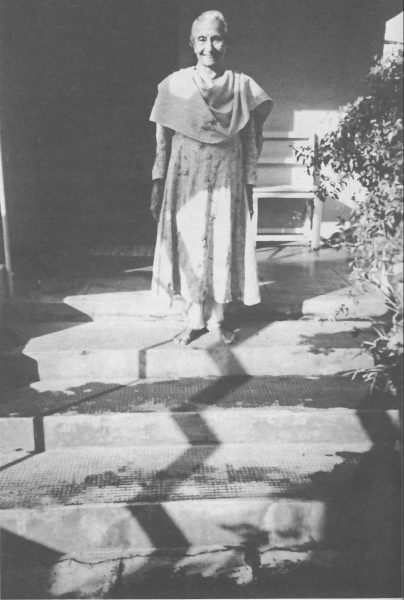
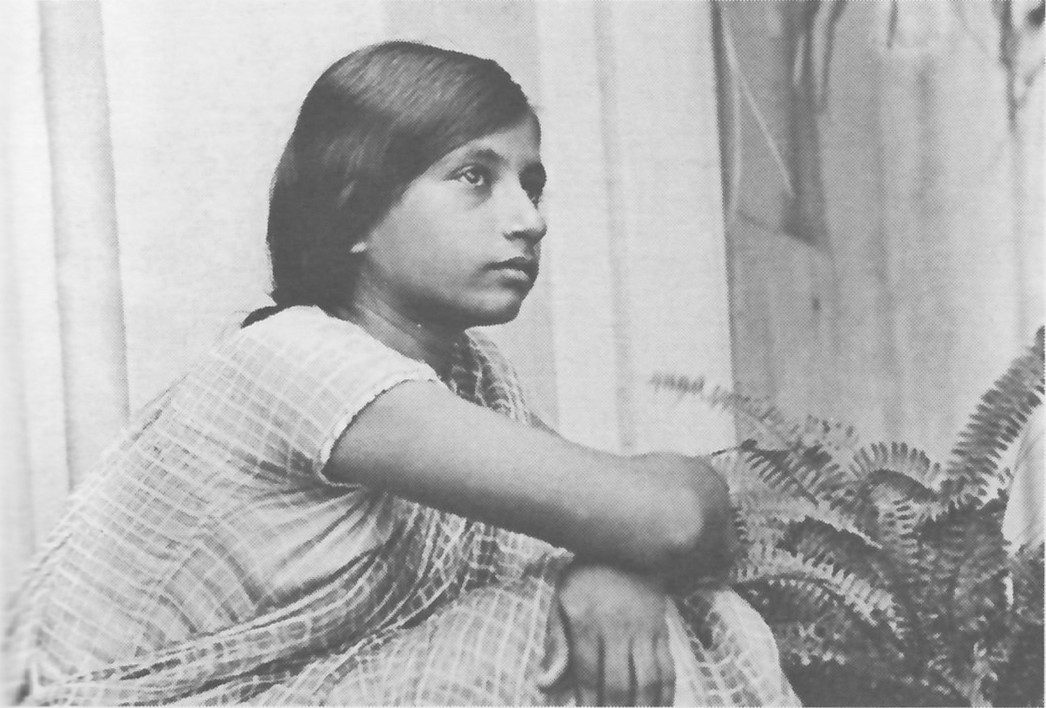
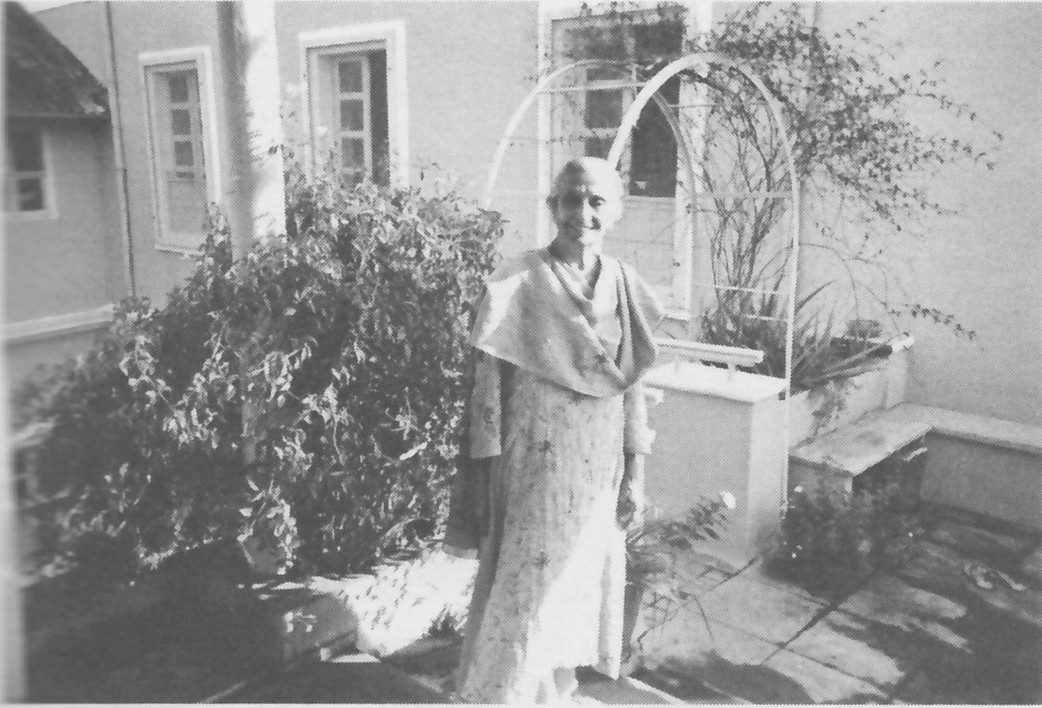
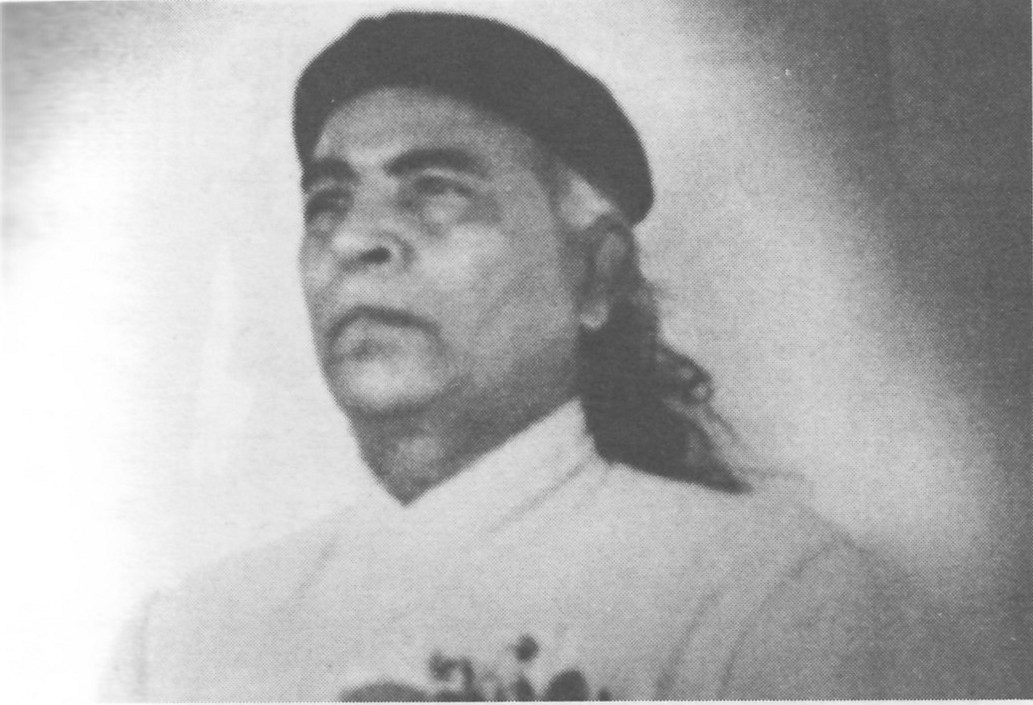
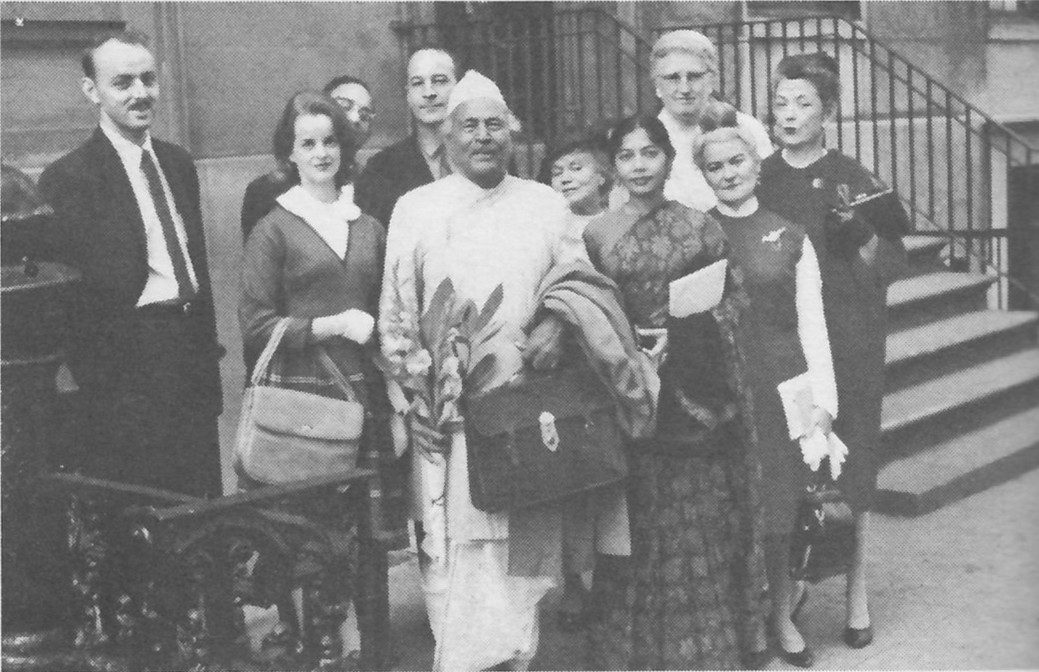


About Savitri | B1C1-09 Advent of the Divine Mother (p.4)